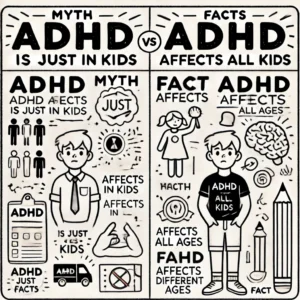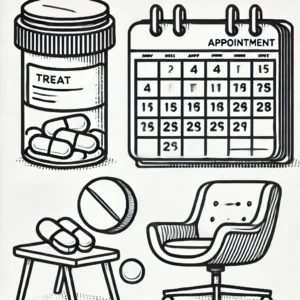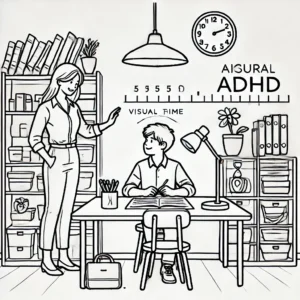Can Diet and Exercise Help with ADHD Symptoms?
ADHD (Attention Deficit Hyperactivity Disorder) is a neurodevelopmental condition that affects focus, impulse control, and organization. While medication and therapy are the mainstays of treatment, lifestyle factors like diet and exercise can significantly impact symptom management.
How Exercise Helps ADHD
Physical activity is more than just a health booster—it directly affects brain function, especially in individuals with ADHD.
- Increased Dopamine and Norepinephrine:
Exercise stimulates the release of these chemicals, which are essential for attention and focus. Activities like running, swimming, or cycling have shown benefits for reducing hyperactivity and impulsivity. - Improved Emotional Regulation:
Regular physical activity helps individuals manage stress and regulate mood swings, making it easier to handle daily challenges. - Focus and Productivity:
Short bursts of exercise, such as a 10-minute walk, can boost concentration before tasks requiring mental effort.
Best Exercises for ADHD:
- Aerobic Activities: Running, dancing, or playing team sports can channel hyperactivity into positive outlets.
- Mind-Body Exercises: Practices like yoga and tai chi combine movement with mindfulness, reducing stress and improving focus.
The Role of Diet in ADHD Management
A well-balanced diet supports brain health, energy levels, and emotional stability, all of which are crucial for managing ADHD symptoms.
- Omega-3 Fatty Acids:
Found in fish like salmon or supplements, omega-3s are linked to improved attention and reduced hyperactivity. Studies suggest that they enhance brain function and neurotransmitter efficiency. - Protein-Rich Foods:
Protein helps regulate blood sugar levels, maintaining consistent energy and focus. Eggs, nuts, and lean meats are excellent sources. - Whole Grains and Complex Carbohydrates:
These provide a steady release of energy, preventing crashes that might worsen inattentiveness or irritability. - Avoiding Artificial Additives:
Some studies suggest that artificial colors and preservatives may exacerbate ADHD symptoms. Choosing whole, unprocessed foods can mitigate potential triggers.
Meal Planning Tips:
- Start the day with a high-protein breakfast to improve focus throughout the morning.
- Incorporate healthy snacks like nuts or fruit to sustain energy between meals.
Practical Steps for Combining Diet and Exercise
- Create a Routine:
Pair meals with planned exercise. For instance, a nutritious snack followed by a walk can improve focus before study or work. - Involve the Family:
Encourage group activities like hiking or cooking healthy meals together to make lifestyle changes enjoyable. - Track Progress:
Keep a journal of diet and exercise habits to identify patterns and improvements in ADHD symptoms.
Resources for Further Support
- ADHD Coaching UK: Offers personalized coaching to integrate diet and exercise strategies into ADHD management.
ADHD Coaching UK - NHS ADHD Diet and Exercise Guide: Provides practical advice for incorporating healthy lifestyle habits to support ADHD management.
NHS ADHD Guide









